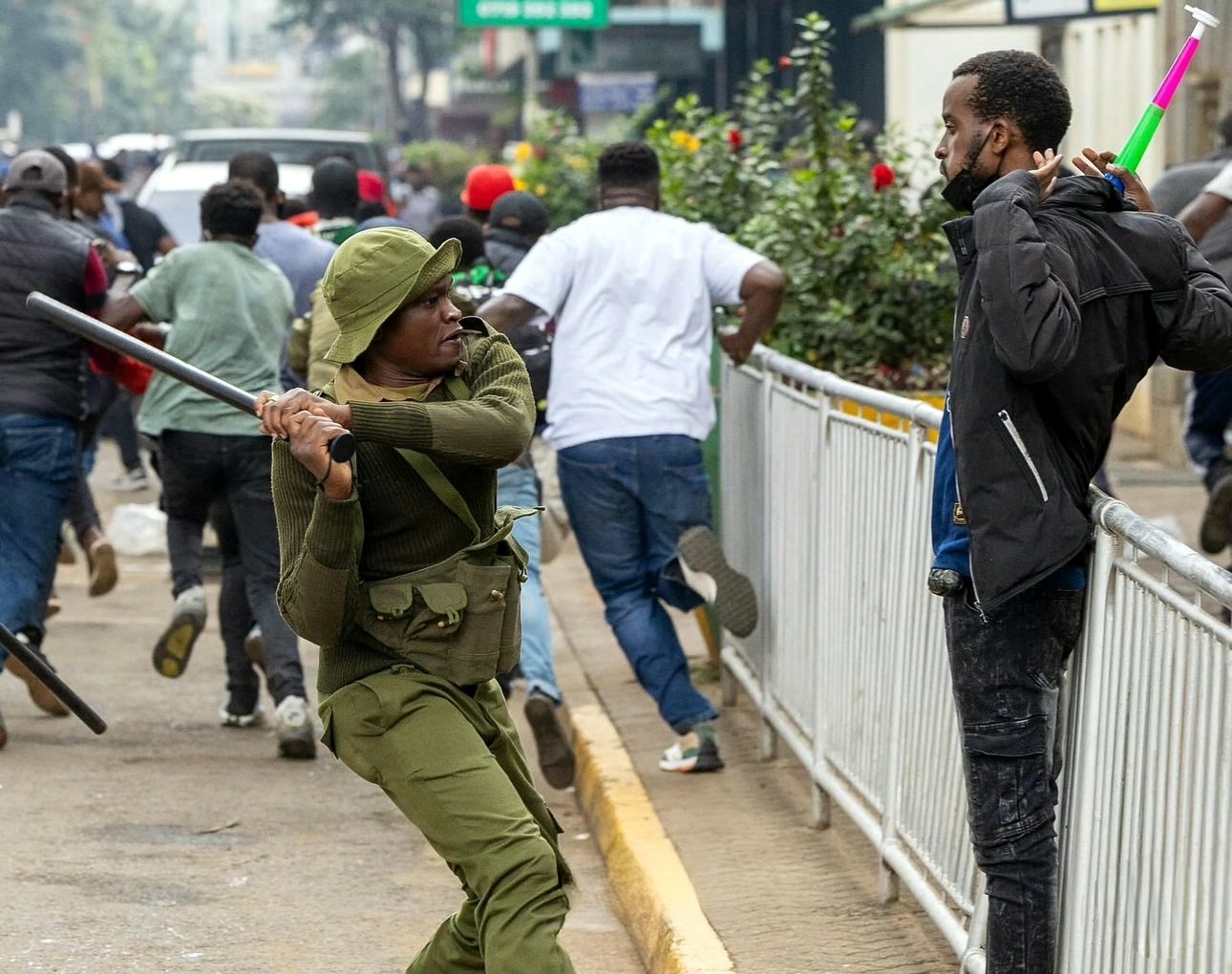For many Nigerians, encounters with law enforcement are not a source of security but of fear and oppression. The very institution meant to protect citizens—the Nigerian Police Force (NPF)—has become synonymous with harassment, extortion, and violence.
From illegal roadblocks to arbitrary arrests and extrajudicial killings, police officers routinely abuse their power, leaving ordinary citizens vulnerable.
This systemic misconduct has shattered public confidence, raising a critical question:
*When those sworn to uphold the law become its greatest violators, where do citizens turn for protection?
*Extortion: A Daily Reality for Nigerians
One of the most widespread forms of police abuse is the blatant demand for bribes.
Officers set up checkpoints under the pretense of security checks, only to extort money from motorists, commercial drivers, and pedestrians.
Those who resist face intimidation, physical assault, or false accusations.
An example is Ife – a young resident of Owerri who took to the media to lament gruesome abduction and extortion from the Nigerian Police in May 2025.
Also in 2023 a United Nations ambassador took to his Instagram handle to lament abduction and extortion from the Nigerian Police and some persons in guise of officials of the EFCC.
Young men are particularly targeted, often accused of being internet fraudsters (“Yahoo boys”) based solely on their appearance; wearing dreadlocks, driving nice cars, or carrying laptops.
Those who cannot pay are detained unlawfully, sometimes for days, until they or their families can secure their release with bribes.
Despite the dissolution of the notorious Special Anti-Robbery Squad (SARS) in 2020, similar units continue these predatory practices under different names. Arbitrary Arrests: No Crime, No Justice Unlawful arrests are another common tactic.
Police officers frequently detain individuals without evidence, holding them in overcrowded cells for extended periods.
Many victims are forced to pay illegal bail fees, even when no charges are filed. In some cases, innocent people remain in detention for months without trial, enduring deplorable conditions.
Police often ignore court orders for release, demonstrating a blatant disregard for the rule of law.
These abuses leave lasting scars; financially, emotionally, and psychologically, on victims and their families.
Brutality and Extrajudicial Killings: A Culture of Impunity
Police brutality in Nigeria often escalates to fatal violence. Countless videos and reports have documented officers assaulting, shooting, or killing unarmed civilians.
The #EndSARS protests of 2020 exposed years of unchecked police violence, particularly against young Nigerians.
Despite promises of reform, killings continue. In 2023, a man was shot dead in Delta State for refusing to pay a bribe.
In Owerri, a trader was beaten to death for violating an unknown curfew.
These cases rarely lead to prosecutions, reinforcing a culture of impunity where officers act without fear of consequences.
The Human Cost: Fear, Trauma, and Distrust
The constant threat of police harassment affects Nigerians in profound ways.
Many alter their daily routines, avoiding certain roads, dressing differently, or traveling only during daylight, to evade police encounters.
Businesses suffer as extortion drains profits and disrupts operations. The psychological impact is even worse.
Victims of police brutality and wrongful detention often suffer from anxiety, depression, and post-traumatic stress. Families of those killed or unjustly imprisoned face an uphill battle for justice in a system that rarely holds officers accountable.
This erosion of trust has led some communities to resort to vigilante justice, further destabilizing the country.
Failed Reforms: Why Change Remains Elusive.
Numerous attempts at police reform have yielded little progress.
The disbandment of SARS and the introduction of the Police Act 2020 promised accountability, yet abuses persist.
Key obstacles include:
– Poor Welfare.
Underpaid officers turn to extortion to supplement their incomes.
– Lack of Accountability.
Weak oversight allows rogue officers to act with impunity.
– Systemic Corruption.
Bribery is institutionalized, with senior officers often complicit in misconduct. Without addressing these root causes, superficial reforms will continue to fail.
The Way Forward: Demanding Real Change
To restore trust in law enforcement, Nigeria must implement meaningful reforms:
1. Overhaul Training Programs.
Focus on human rights, de-escalation tactics, and community policing.
2. Establish Independent Oversight.
A civilian-led body should investigate and prosecute police misconduct.
3. Improve Welfare Conditions.
Better pay and benefits will reduce incentives for extortion.
4. Strengthen Judicial Processes.
Expedite cases of police abuse to ensure justice for victims.
5. Public Empowerment.
Citizens must know their rights and document abuses through legal and media channels.
The Nigerian police force, intended to safeguard citizens, has instead become a source of terror. Without urgent, systemic reforms, harassment, extortion, and brutality will persist.
The government must act decisively, not with empty promises, but with concrete actions that restore dignity, justice, and security for all Nigerians.
Until then, the people’s cry for accountability will only grow louder.
A nation cannot thrive when its protectors are its oppressors.

